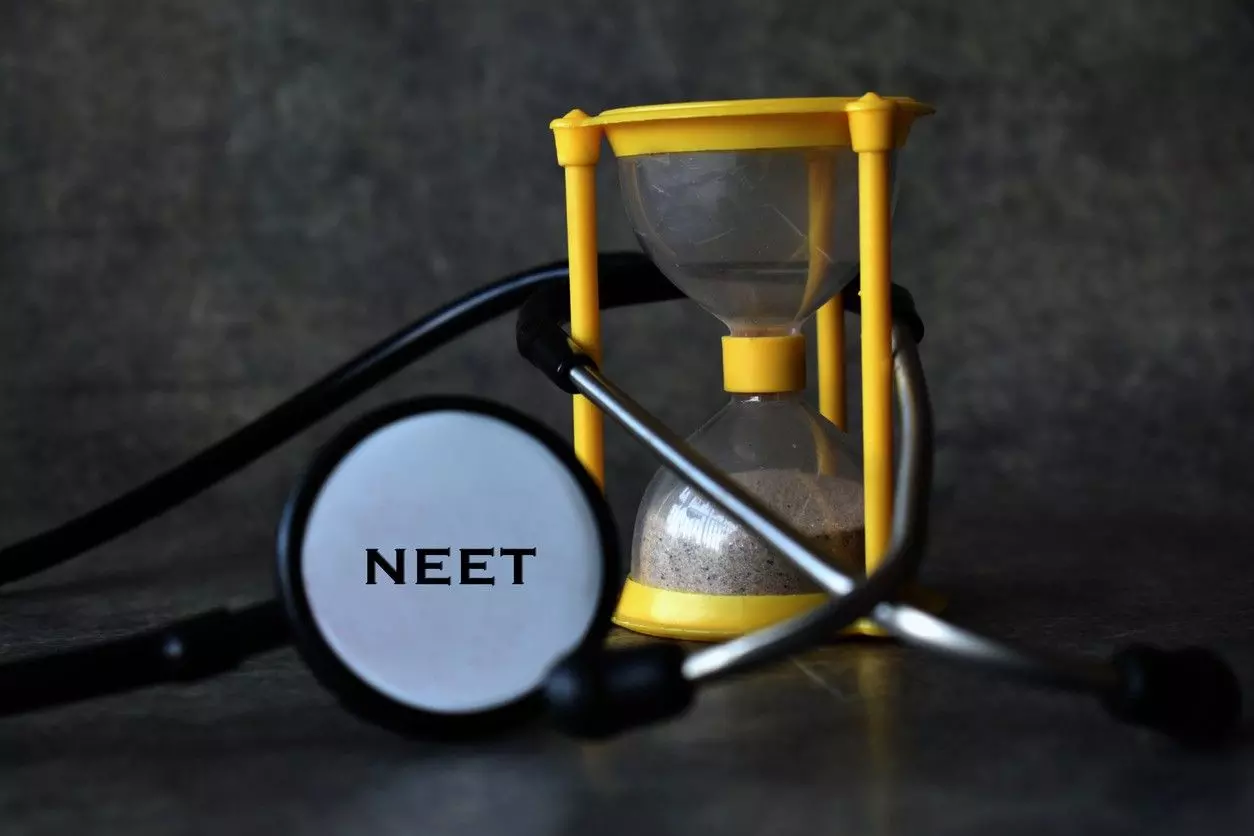
NEET exam fear: When pressure leads to tragedy; students reveal ordeal
In six years, nearly 200 students have tragically ended their lives, unable to cope with the overwhelming stress of the NEET exam

The National Eligibility Cum Entrance Test (NEET), a pivotal exam for aspiring medical students in the country, has become a source of immense stress, leading to a tragic rise in anxiety, depression, and in extreme cases, death by suicide. As NEET-UG 2025 approaches on May 4, the pressure on students to succeed is reaching dangerous levels, with a growing number feeling overwhelmed by the weight of academic, parental, and societal expectations.
In six years, nearly 200 students have tragically ended their lives, unable to cope with the overwhelming stress of the NEET exam. The latest incident that shocked Chennai was a 21-year-old aspirant’s death by suicide, a heartbreaking reminder of the mental health crisis gripping NEET candidates. But what is driving this rise in student suicides?
Mental health struggles
NEET is the sole gateway for students to secure seats in the country’s government medical colleges. With over 24 lakh students competing for just 55,000 seats, the competition is fierce, and the stakes couldn’t be higher. Despite this, the Union government has refused to grant a NEET exemption to Tamil Nadu, further intensifying the pressure on over 1.5 lakh students who will sit for the exam on May 4.
Also read: Centre declines consent for TN's anti-NEET Bill, says Stalin; calls meeting on April 9
The pressure on students is not only academic but emotional. As they juggle their studies, many students also face the heavy burden of expectations from parents and society. The fear of failure can lead to anxiety, depression, and, in extreme cases, suicidal tendencies. "During my NEET prep days, there was a point where I became extremely suicidal. I tried reaching out to my mom and told her that I need to see a psychiatrist. But all she said was that I was doing this, to avoid studying. The pressure to crack the exam, the fear of failure, the toxic competitiveness – it all just eats away at what should have been the most memorable phase of our school years," says a NEET aspirant on condition of anonymity.
Systemic issues and parental pressures
Parents and coaching centres are often seen as contributing to the intense pressure students face. Many students feel forced into a narrow career path, believing they have no other option but to pursue medicine, often at the expense of their personal interests and well-being. A student explained, "NEET has turned into a money-minting machine for coaching centres, and parents fall into this trap. The setup becomes brutal."
Also read: NTA 'lapses' in NEET-UG 2024: SC closes case as Centre says it will implement reforms
Even for those who manage to crack the NEET exam, the reality of a medical career can be far from fulfilling. Long hours, separation from family, and high levels of stress leave many feeling drained and disillusioned. One NEET success story reveals, "It takes years to build something substantial in medicine, and the sacrifices along the way are immense. But once you're in, the pressure only intensifies."
To address this growing crisis, the state health department has taken measures to offer support. Mental health helplines have been set up to identify high-risk students and provide counselling. Last year, over 65,000 NEET aspirants who did not perform well were provided with mental health counselling. Experts stress the importance of addressing mental health early, warning that "as a society, as a family, we have failed when a person chooses to end their life."
What experts say
Dr R Vasanth, consultant psychiatrist at MGM Malar Hospital argues that the root of the issue lies in the early educational pressures placed on students. With integrated coaching starting as early as middle school, children are often forced to choose between career paths that may not align with their true interests. "The fixation on becoming a doctor or engineer is so high that many parents even spend their entire savings, pushing their children to follow these paths," he explains. This leaves little room for students to explore other opportunities or develop skills outside of these rigid expectations.
Also read: NEET-UG to remain pen-and-paper based: NTA
To help students navigate these pressures, experts call for a broader focus on skill development and the exploration of different career paths. "Identification of talent, learning what interests the child, and focusing on skill development should be the priority," said Logeshwaran, clinical psychologist at TeleManas, the mental health helpline. The hope is that by fostering a more flexible and supportive educational system, students can reduce their stress and pursue careers that truly resonate with them.
Suicide helpline numbers
(Suicides can be prevented. For help please call Suicide Prevention Helplines: Neha Suicide Prevention Centre – 044-24640050; Aasara helpline for suicide prevention, emotional support & trauma help — +91-9820466726; Kiran, Mental health rehabilitation — 1800-599-0019, Disha 0471- 2552056, Maithri 0484 2540530, and Sneha’s suicide prevention helpline 044-24640050.)
(The content above has been generated using a fine-tuned AI model. To ensure accuracy, quality, and editorial integrity, we employ a Human-In-The-Loop (HITL) process. While AI assists in creating the initial draft, our experienced editorial team carefully reviews, edits, and refines the content before publication. At The Federal, we combine the efficiency of AI with the expertise of human editors to deliver reliable and insightful journalism.)

